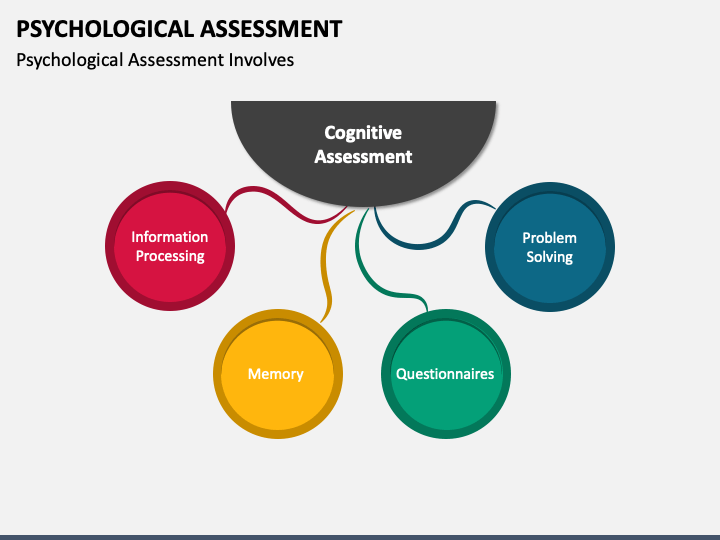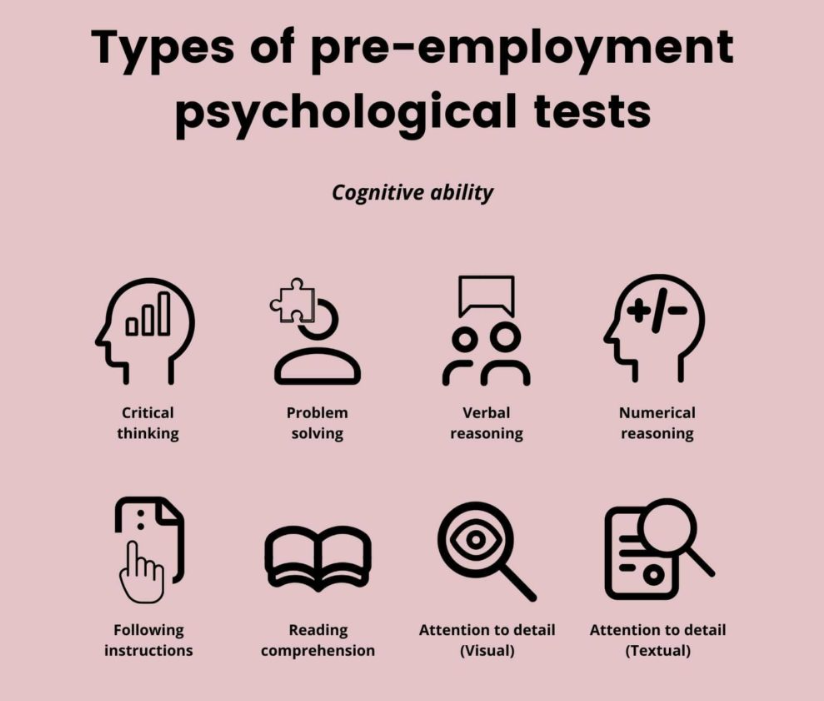Engineering has always been a field of innovation and evolution, offering exciting opportunities for those who choose it as a career path. As a fresh graduate or a college student,…

Psychological Aptitude Tests: A Guide for Freshers
Entering the professional world as a fresher can be both exciting and daunting. The competition is fierce, and employers are seeking candidates who not only possess the right skills but also the right mindset. This is where psychological aptitude tests come into play. These aptitude tests are invaluable tools that help employers assess a candidate’s suitability for a particular role beyond their qualifications and experience.
In this article, we’ll delve into the world of psychological aptitude tests, their types, and how they aid in the hiring of freshers for jobs.
What are Psychological Assessments?
The purpose of psychological tests is to quantify a person’s cognitive skills, behavioral characteristics, and emotional responses. These evaluations include information on a person’s cognitive abilities, personality characteristics, and likelihood of success in various employment areas.
In contrast to conventional recruiting practices, which place greater emphasis on education and experience, psychological aptitude tests probe further, giving employers a more comprehensive understanding of a candidate’s potential.

Types of Psychological Tests
Although there are many various kinds of psychological tests, some of the more popular ones are as follows:
- Intelligence tests: These tests measure a person’s general cognitive ability, including their verbal reasoning, quantitative reasoning, and problem-solving skills. Some of the most popular intelligence tests include the Wechsler Adult Intelligence Scale (WAIS) and the Stanford-Binet Intelligence Scale.
- Personality tests: These tests measure a person’s personality traits, such as extroversion, agreeableness, and conscientiousness. Some of the most popular personality tests include the Myers-Briggs Type Indicator (MBTI) and the 16PF Personality Questionnaire.
- Aptitude tests: These tests measure a person’s ability to learn new skills and to perform certain tasks. Some of the most popular aptitude tests include the Wonderlic Personnel Test and the Graduate Record Examination (GRE).
- Neuropsychological tests: These tests measure a person’s cognitive abilities, such as their memory, attention, and processing speed. Some of the most popular neuropsychological tests include the Halstead-Reitan Neuropsychological Battery and the Wechsler Memory Scale.
Types of Aptitude in Psychology
There are many different types of aptitude tests in psychology, but some of the most common include:
- Cognitive aptitude: This form of aptitude tests a person’s mental faculties, including their capacity for logic, problem-solving, math, and language. Tests of cognitive aptitude demonstrate a candidate’s capacity for information processing, decision-making, and situational flexibility.
- Emotional Intelligence (EI): Emotional Intelligence is a concept that assesses a person’s capacity to comprehend, control, and engage with others through their emotions. This is essential in jobs requiring a high level of leadership, collaboration, and interpersonal skills.
- Personality Traits: Personality traits are examined in personality tests together with a person’s inclinations, interests, and attitudes. Employers can find people who fit the corporate culture and job needs by understanding personality qualities.
- Motivational Aptitude: The motivational aptitude test measures a candidate’s drive, enthusiasm, and motivation for the position they are seeking. It reveals whether an applicant is genuinely interested in the position and is likely to remain dedicated and engaged.
Differential Aptitude Test (DAT) in Psychology
The Differential Aptitude Test (DAT) is a battery of tests that measures five cognitive abilities: verbal reasoning, quantitative reasoning, abstract reasoning, perceptual speed and accuracy, and mechanical reasoning. It is designed to assess a person’s aptitude for different types of jobs and educational programs.
- Logical Reasoning Questions and Answers for Freshers
- Aptitude Test Sample Questions & Answers for Engineering Students
The DAT is a timed test that is typically administered in a group setting. It takes about 2 hours to complete. The test is scored on a scale of 20 to 80, with 50 being the average score. The DAT is used by colleges and universities to make admissions decisions, by employers to make hiring decisions, and by career counselors to help people choose careers.
How do Psychological Aptitude Tests Help in Hiring Freshers for Jobs?
Psychological aptitude tests can be a valuable tool for hiring freshers for jobs. They can help employers assess a candidate’s cognitive abilities, personality traits, and emotional functioning. This information can be used to make hiring decisions that are more likely to lead to successful job performance.
- Objective Decision-Making: Psychological aptitude tests provide quantifiable data, allowing employers to make more informed hiring decisions based on objective criteria rather than intuition.
- Predicting Job Performance: These tests offer insights into how well a candidate will perform in a specific role. Freshers can showcase their potential even without extensive work experience by excelling in aptitude tests relevant to the job.
- Reducing Bias: Psychological assessments can help minimize unconscious bias in hiring by focusing on objective traits and soft skills. This ensures a fair evaluation process for all candidates, regardless of their background.
- Cultural Fit: Freshers who align with a company’s values and culture are more likely to succeed and contribute positively. Psychological tests aid in identifying candidates who share the company’s ethos.
- Personal Growth: Participating in psychological aptitude tests provides freshers with insights into their strengths and areas for improvement. This self-awareness can guide their professional development journey.

Firstnaukri Contests for Skill Enhancement
For freshers looking to excel in psychological aptitude tests and stand out in the competitive job market, participating in Firstnaukri contests is a valuable opportunity. Firstnaukri offers a platform for skill enhancement and learning. By engaging in these contests, freshers can:
- Practice Regularly: Consistent practice through contests helps in improving cognitive abilities, emotional intelligence, and problem-solving skills.
- Receive Constructive Feedback: Contests provide valuable feedback, allowing candidates to identify their strengths and areas that need improvement.
- Learn from Peers: Interacting with fellow participants in contests provides freshers with the chance to learn from others’ approaches and strategies.
- Boost Confidence: As freshers perform well in contests, their confidence in their abilities grows, which positively impacts their performance during interviews and aptitude tests.
Conclusion
Psychological aptitude tests are effective tools that give recent graduates a special chance to present their abilities, character characteristics, and prospects to potential employers. These tests provide employers with a more thorough knowledge of a candidate’s suitability for a position by probing deeply into a candidate’s cognitive skills, personality traits, emotional intelligence, and motivational aptitude.
Freshers may prepare properly, develop their abilities, and acquire a competitive edge in the job market by taking part in Firstnaukri contests. Keep in mind that success depends on more than just your resume; it also depends on the attitude you bring to the table.
FAQs on Psychological Aptitude Tests
What is a psychological aptitude test?
A psychological aptitude test evaluates cognitive, emotional, and personality traits. It helps employers assess candidates’ suitability for specific roles by measuring skills like problem-solving, teamwork, and emotional intelligence.
What are the types of psychological aptitude tests?
Common types include cognitive tests (problem-solving), personality tests (traits assessment), situational judgment tests (real-world scenarios), and emotional intelligence tests (self-awareness, empathy).
How to prepare for psychological aptitude tests?
Practice regularly, improve cognitive skills (reasoning, math), enhance emotional intelligence, and learn about personality traits. Participating in skill-enhancing contests can boost your confidence and readiness.
Why are psychological aptitude tests important in hiring?
These tests provide objective insights into cognitive abilities, personality traits, and emotional intelligence. They aid in predicting job performance and reducing bias, ensuring a good cultural fit.
Best practices for excelling in psychological aptitude tests?
Regular practice, time management, understanding the role’s requirements, and focusing on your strengths are essential. Engaging in contests like Firstnaukri can enhance your skills and boost your confidence.
Latest Posts
Top Skills in Resume For Freshers – 2026 Detailed Guide
Creating a compelling resume as a fresh graduate can be a daunting task, but it’s also your ticket to landing your dream job. One of the key elements that can…
Step-by-Step Guide: How to Become a Mechanical Engineer
Mechanical engineering stands as one of the most versatile and in-demand engineering disciplines globally, offering exciting career opportunities across diverse industries. For college students and recent graduates in India, understanding…
What is Upskilling? – Meaning, Benefits and Tips to Upskill
Being ahead of the curve is more crucial than ever in the ever-changing world of today. This requires ongoing skill development and technological adaptation. This entails upskilling or reskilling for…
Top 10 Do’s and Don’ts For Your First Job
Looking for a new job can be a daunting task, especially if you’re a fresher. There are so many factors to consider, from the type of job you want to…
Popular Posts
100+ Quantitative Aptitude Questions for Placement with Answers
Quantitative aptitude questions play a crucial role in campus placements, competitive exams, and entry-level job interviews. Whether you are preparing for your first job interview, an aptitude test for placement,…
How to Start an AI Career in India: Skills and Future of Work
Artificial Intelligence (AI) is revolutionizing industries worldwide. From automating routine tasks to enabling self-driving cars and intelligent healthcare diagnostics, AI is reshaping the future of work. For college students and…
How to Write Mail for Job Application – Explained
A job application email is a professional email that you send to a potential employer to express your interest in a job opening. It is typically accompanied by your resume…
How to Write a Job Application Letter (With Samples)
When it comes to applying for your first job, making a great first impression is crucial. As a recent graduate, you might feel a little intimidated by the idea of…
Google Internship 2026 for Freshers: All You Need to Know
In the competitive landscape of technology careers, a Google internship stands out as a golden opportunity for aspiring professionals. Whether a college student or a recent graduate, securing an internship…
